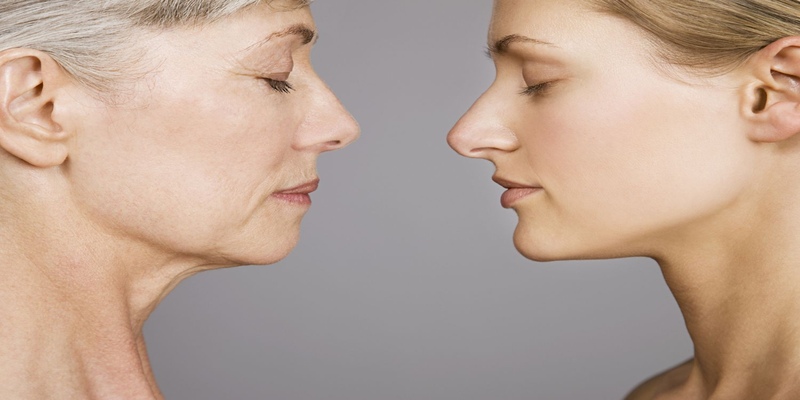Signs Not Getting Enough Nutrients - 10 Weird Indications
Mar 03, 2024 By Nancy Miller
Proper nutrition plays a vital role in maintaining our overall health and well-being. It is crucial to ensure that we are getting all the essential nutrients our bodies need. However, even with our best efforts, it is possible to unintentionally miss out on some important nutrients without even realizing it. While the traditional signs of nutrient deficiencies are well-known, some more peculiar symptoms could potentially indicate a lack of specific vitamins or minerals in your body.
These signs, although intriguing, should not be ignored as they may suggest that you are not receiving an adequate amount of nutrients. By shedding light on this matter, we hope to raise awareness about the importance of a balanced and nutrient-rich diet. Here are 10 intriguing and somewhat unusual signs that may indicate a potential nutrient insufficiency, so you can take proactive steps towards improving your nutritional intake and overall well-being.
10 Weird Signs you’re Not Getting Enough Nutrients
1. Cracks in the Corners of Your Mouth (Angular Cheilitis):
Have you ever noticed painful cracks or splits in the corners of your mouth that just won't seem to heal? This uncomfortable condition, known as angular cheilitis, can be indicative of a deficiency in certain B vitamins, specifically riboflavin (vitamin B2), niacin (vitamin B3), or B12. These vital vitamins play a crucial role in maintaining healthy skin and mucous membranes, and a deficiency in them can result in persistent irritation and cracking around the mouth, causing discomfort and inconvenience. If you're experiencing this issue, it's important to address the deficiency and ensure you're getting an adequate intake of these essential B vitamins to promote overall oral health and well-being.
2. Hair Loss:
While it is normal to experience some degree of hair loss, it is important to pay attention to excessive shedding or noticeable thinning, as these could be indications of nutrient deficiencies. Specifically, deficiencies in iron, zinc, or biotin (vitamin B7) can contribute to such issues.
Iron deficiency, in particular, can even lead to a condition known as telogen effluvium, where a significant amount of hair prematurely enters the resting phase of the hair growth cycle, resulting in an increased rate of shedding. Therefore, it is crucial to ensure a well-balanced diet and consider consulting a healthcare professional if hair loss becomes a concern.
3. Brittle Nails:
Weak, brittle, or ridged nails can be a sign of various nutrient deficiencies, including iron, zinc, biotin, and vitamin C. These essential nutrients play crucial roles in maintaining the health and strength of nails.
A deficiency in any of these nutrients can lead to dryness, brittleness, and an increased susceptibility to splitting or breaking. Ensuring an adequate intake of these nutrients through a balanced diet or supplementation can help improve the overall health and appearance of your nails, promoting stronger, healthier nails that are less prone to damage.
4. Muscle Cramps and Spasms:
Experiencing frequent muscle cramps or spasms, particularly in the legs, could indicate a deficiency in electrolytes such as magnesium, potassium, or calcium. These essential minerals play crucial roles in muscle contraction and relaxation, ensuring smooth and coordinated movement.
When the levels of these electrolytes are inadequate, it disrupts the delicate balance needed for optimal muscle function, leading to the discomfort of muscle cramping and spasms. It is important to maintain proper electrolyte levels through a balanced diet and, if necessary, consult a healthcare professional for further evaluation and guidance.
5. Pica:
Pica is a condition characterized by cravings for non-food items such as ice, clay, dirt, or chalk. While the exact cause of pica is not fully understood, it has been associated with various nutrient deficiencies, including iron, zinc, and other minerals. If you find yourself craving unusual substances, it's essential to speak with a healthcare professional to determine the underlying cause.
6. Tingling or Numbness in Extremities:
Experiencing tingling, numbness, or a pins-and-needles sensation in your hands, feet, or other extremities could be a sign of vitamin B12 deficiency. Vitamin B12, also known as cobalamin, plays a crucial role in maintaining nerve health and function. Inadequate levels of this essential vitamin can lead to nerve damage and neurological symptoms such as tingling or numbness. It is important to ensure sufficient intake of vitamin B12 through dietary sources or supplements to support optimal nerve function and overall well-being.
7. Spoon-shaped Nails (Koilonychia):
Koilonychia is a condition characterized by nails that are thin and concave, resembling a spoon. This unusual nail shape can be a sign of iron deficiency anemia, a condition where your body lacks sufficient iron to produce an adequate number of red blood cells. Iron is essential for transporting oxygen to cells throughout the body, and a deficiency can lead to a range of symptoms, including fatigue, weakness, and pale skin.
8. Cravings for Salt:
While it's normal to enjoy salty foods from time to time, intense cravings for salt could indicate an underlying electrolyte imbalance, particularly low levels of sodium. Sodium is a vital electrolyte involved in regulating fluid balance, nerve function, and muscle contraction. Inadequate sodium intake or excessive loss through sweating can lead to salt cravings as the body tries to maintain electrolyte balance.
9. Persistent Bad Breath:
While poor oral hygiene is a common cause of bad breath, persistent halitosis could also be a sign of nutrient deficiencies, particularly vitamin C. Vitamin C is essential for gum health and wound healing within the mouth. A deficiency can lead to gum disease and an increased risk of oral infections, which may contribute to persistent bad breath.
10. Increased Susceptibility to Infections:
If you find yourself frequently falling ill or taking longer than usual to recover from infections, it could be a sign of compromised immune function due to inadequate nutrient intake. Essential nutrients such as vitamin C, vitamin D, zinc, and iron play crucial roles in supporting immune function, and deficiencies can weaken the body's ability to fend off pathogens.
Conclusion:
While these seemingly unrelated and peculiar signs may catch your attention, they can actually provide valuable insights into potential nutrient deficiencies in your body. Paying attention to these symptoms can help you identify if you're lacking essential vitamins and minerals. If you regularly experience any of these indicators, it's crucial to seek guidance from a healthcare professional. They can help you determine the underlying cause and develop a plan to address any potential nutrient deficiencies through dietary adjustments or supplementation. Remember, prioritizing a well-balanced diet that includes nutrient-dense foods is vital for maintaining optimal health and overall well-being.

Top 5 Anti-Ageing Concerns and Signs of Ageing - How To Address Them

Understanding Sugar's Importance in Our Body

The Healthiest 6 Frozen Meals Recommended by a Dietician

Beginner’s Guide to Assisted Pullups

How Does One Choose Between an Essence and a Toner?

Ready to Learn the Splits? Follow These Simple Steps for a Safe, Flexible Start

Turmeric in Skin Care: Is It Worth the Hype?



